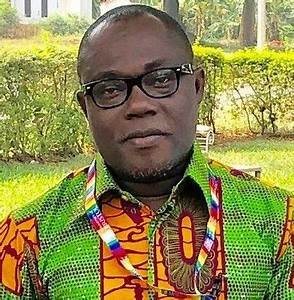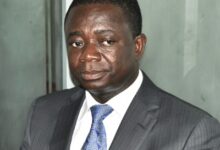
Professor Ransford Edward Van Gyampo, Department of Political Science, University of Ghana has noted that the weak role of the Legislature in its relations with the Executive under Ghana’s hybrid 1992 constitutional arrangement, has created serious problems for the Judiciary.
He argued that there was no ceiling on the number of Supreme Court judges that the President can appoint; indeed, under article 128 (1) of the 1992 Constitution, “the Supreme Court shall consist of the Chief Justice and not less than nine other justices of the Supreme Court”.
The challenge of Ghana’s hybrid constitution in this area, according to Prof. Gyampo is that, a weak Parliament controlled by the President would approve any number of judges appointed by the President in an attempt to pack the court and manipulate its composition in a manner that makes the President a judge in his own course and sacrifice constitutionalism.
Prof. Gyampo said these at an inter-college lecture on the 1992 Constitution and constitutionalism in Ghana recently.
It was organised by the College of Humanities of the University of Ghana.
The event was chaired by Prof. Samuel Agyei-Mensah, Provost of the College of Humanities and was attended by over 600 participants comprising faculty and students from the College of Humanities, political party representatives, civil society actors, and media practitioners.
Prof. Gyampo, who is an associate professor of Political Science and Director of the Centre for European Studies at the University of Ghana, revealed that the 1992 Constitution undermines constitutionalism in the area of MPs cross-carpeting.
According to Prof. Gyampo, Article 97 (1) (g) provided that “a member of parliament shall vacate his seat in parliament if he leaves the party of which he was a member at the time of his election to parliament to join another party or seeks to remain in parliament as an independent member”.
This provision according to Prof. Gyampo was to deal with the mischievous situation under the First Republic (1960-1966) when Osagyefo Dr Kwame Nkrumah lured MPs to cross-carpet to his party and gave them appointments and those who resisted were detained (Awoonor, 1990).
He said the problem with the above constitutional provision was that, it expressly forbid MPs to behave independently on the floor of Parliament and to vote according to their conscience.
Prof. Gyampo however lauded the constitution for guaranteeing power alternation, peace, stability and national cohesion in the country.
He argued that the Consultative Assembly that actually drafted the 1992 constitution did a great disservice to Ghanaians with respect to constitutionalism, by granting too many powers to the executive President and creating very fragile and toothless countervailing mechanisms.
“The 1992 constitution may have served us well and guided the smooth transfer of power on three consecutive occasions. It has given us peace, cohesion, stability and made us the beacon of hope in the African region.
“But it runs contrary to the dogmas of constitutionalism because in my view, it was made to pacify someone who was not a fun of multiparty democracy and constitutional rule,” he said.
According to Prof. Gyampo, unless Ghana’s abandoned constitutional review process is revived, the nation cannot develop as its failed efforts to fight the quagmires of poverty and under-development were also directly and indirectly linked to the kind of constitutional order in existence.
He said any constitution that cannot guarantee constitutionalism was a mere political document aimed at ticking the box to fulfill some conditionality; “that constitution is completely out of touch with the quest for development”.
GNA







